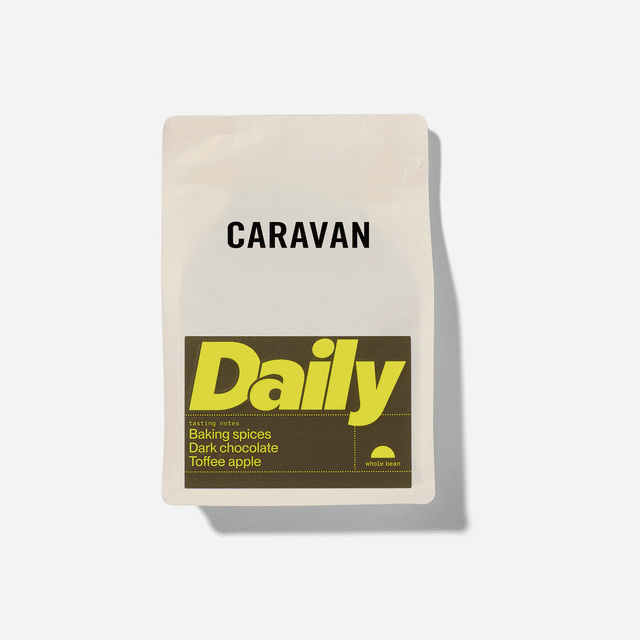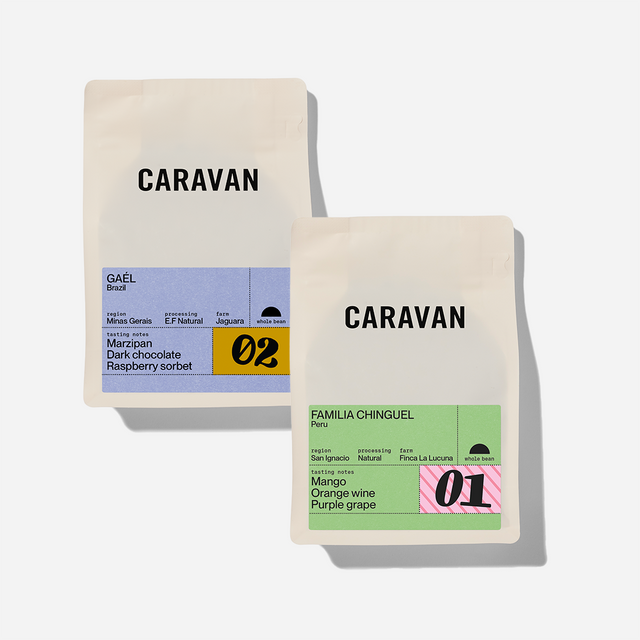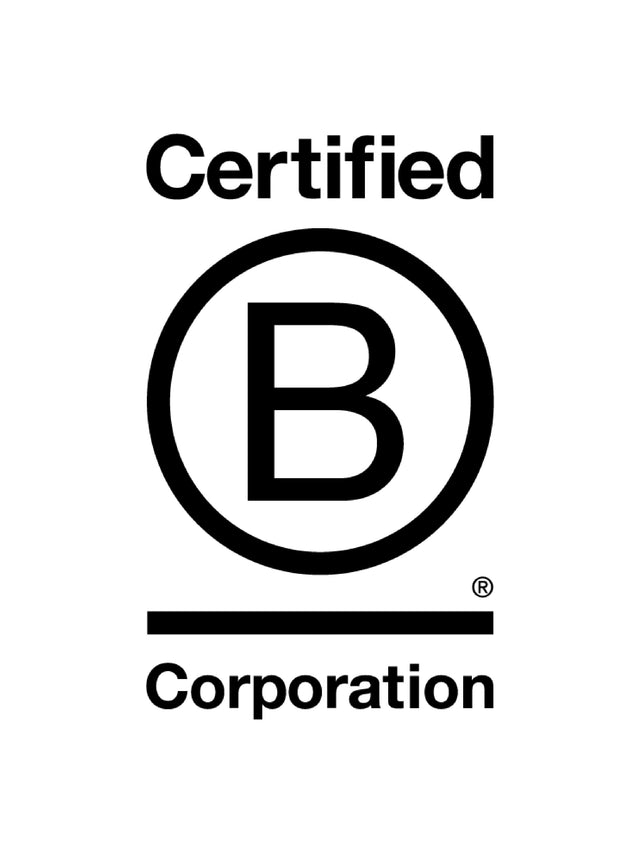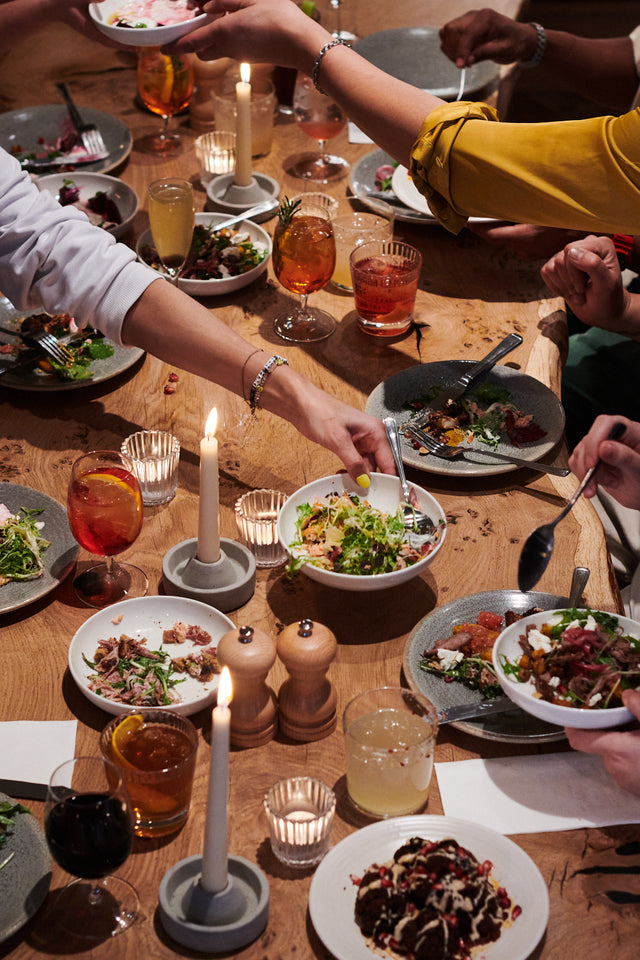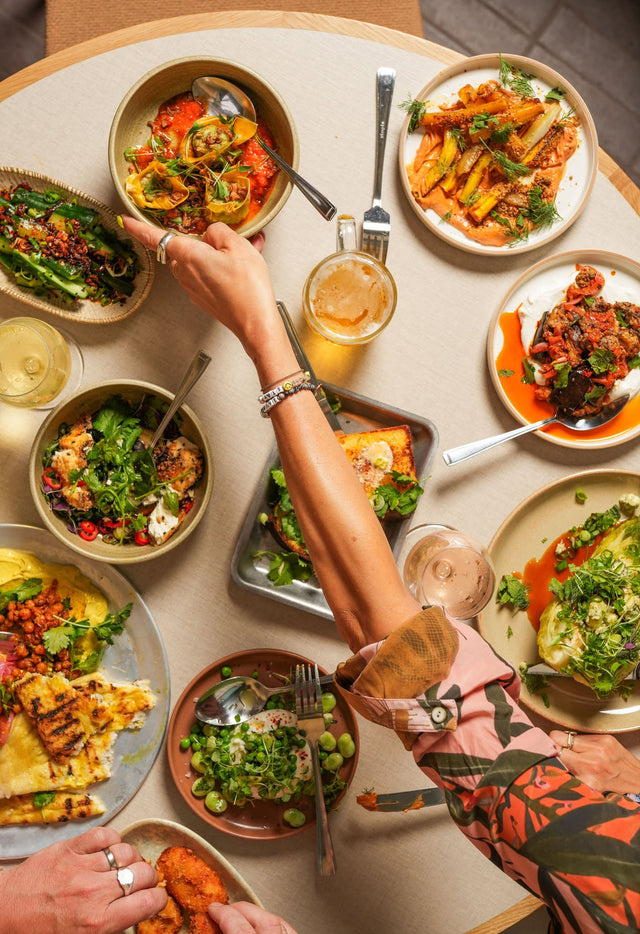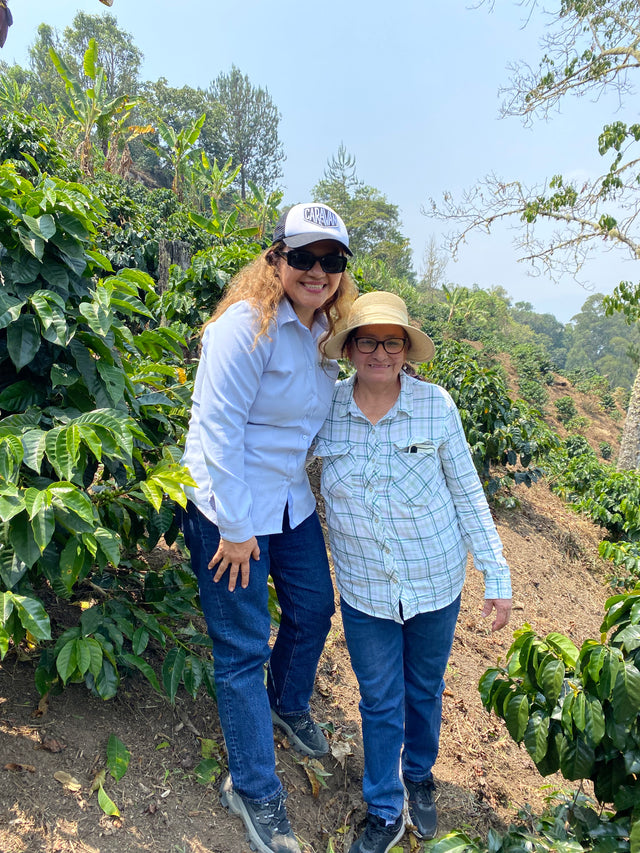Caravan's Female Producer Programme: Empowering Women in Coffee
(Pictured: Women of the Jovemcafe Programme, Guatemala)
Since early 2021, Caravan’s Female Producer Program has partnered with The Chain Collaborative (TCC), a non-profit organisation that supports coffee-growing communities. With support from companies like Caravan, TCC operates their Community-Led Development Incubator Program, which enables coffee-growing groups to develop project ideas, enhance their project management skills, and create programmatic work from start to finish that is relevant to their unique needs and goals.
By fostering connections within their regions and beyond, this program promotes social and economic growth in coffee-producing areas. Over the past three years, TCC has sponsored 18 communities across Latin America and East Africa. Caravan's Female Producer Program has funded three of these projects through our Female Producer Programme initiative, which raises seed money by donating 10p per kilo of women’s coffee sold by Caravan. This initiative has funded three major projects: JOVEMCAFE in Guatemala, the Sholi Young Women’s Group in Rwanda, and the Damas Women’s Group in Peru.
TCC Projects Funded by Caravan
1. JOVEMCAFE, Guatemala (Completed in 2023):

(Pictured: Women of the Jovemcafe program in Guatemala)
This project provided resources to start two small businesses, gain management skills, and increase financial independence. The Jovemcafe program, which concluded in 2023, focused on supporting young people in coffee-growing regions. This project empowered its participants by providing resources to start two small businesses, gain management skills, and increase financial independence.
2. Sholi Young Women’s Group, Rwanda (Set to finish in 2024):

(Pictured: Women of the Sholi Cooperative in Rwanda)
The Sholi Cooperative, located in the Cyeza District of Rwanda, has a rich history rooted in empowering women in coffee farming. Established in 2013, Sholi started as an association of 30 local women seeking to expand their social and economic opportunities through coffee farming. Today, the group has strong female leadership, with women making up 40% of the members and most of the board, including the President. The Sholi cooperative became a part of TCC’s Incubator Program and is now nearing the end of the 9-month implementation phase. The program was tailored to meet the specific needs of the cooperative, providing hands-on workshops and training in key areas such as marketing and market access. Sholi have focused on two areas, both with an emphasis on supporting young women:
(i) Young Mother’s Program:
This project is designed to support 80 single mothers by enhancing their income-generating potential through coffee farming. As part of this initiative, the cooperative purchased two plots of land where these women can grow coffee. The land and coffee trees were provided free of charge by the cooperative, with the goal of fostering a sense of collaboration and community as well as providing income long term. In addition to farming resources themselves, the women received training in various agricultural techniques, including composting, coffee-tree care, and climate adaptation. They also established a shade tree nursery to improve the health of their coffee crops. Recognizing the importance of mental health, the cooperative offers professional counselling services and family planning support for these young mothers.
(ii) Alternative Income Project:
Recognising the need for income during coffee farming off-seasons, the Sholi group also launched an alternative income project. This initiative, inspired by traditional Rwandan agricultural customs, centres around goat-rearing, which provides milk, manure, and meat. Goats are a highly valued asset in Rwanda and are often seen as a status symbol. The cooperative has purchased goats for each member of the 80-person group and has provided training on livestock care. Additionally, the cooperative is working on constructing a local marketplace where women can sell handicrafts, further boosting their economic potential. The marketplace will also serve as a hub for female-led collaboration, encouraging the exchange of ideas and resources among the members.
3. Damas Women’s Group, Peru (Incubator Program Starting in 2024):

(Pictured: Luzmila Loayza, the commercial director for Cooperative Frontera San Ignacio who helps support the Las Damas group, and Elsie, the president of Las Damas)
The Damas Women’s Group, based in the San Ignacio region of northern Peru, consists of 180 women, all of whom are members of the Cooperative Frontera San Ignacio. The group is currently in the initial phase of the TCC’s Incubator Program, known as the ‘Learning and Design’ phase. This phase, which spans six months, aims to determine the group’s priorities and how they can best implement their goals through collaborative strategic planning and project development. To date, TCC has held several on-boarding sessions, fostering connections among community leaders and participants. These sessions were essential for laying the groundwork for future projects by establishing trust and understanding the needs of the community. Workshops during this phase have focused on skill development in strategic planning, organization, and business management.
The Damas group has a long-standing commitment to promoting female leadership. One of their early objectives was to increase the number of women on the cooperative’s board of directors. Additionally, they have worked to promote their female-produced coffee brand, ‘Damas de San Ignacio,’ which is purchased by Caravan and features in our most popular blends.
The Damas Women’s Group is proposing an Incubator Project that will focus on livestock husbandry, similar to Sholi’s goat-rearing project. This program will offer women additional sources of income and provide essential resources like manure, which can be reintegrated into their coffee farming practices. The next steps for this group involve developing a comprehensive strategic design plan that will include specific project proposals, budgets, and implementation procedures.
In early September 2024, Andrea and Zuza, our Head of Coffee and Head Roaster, had the privilege of visiting the Damas group in Peru. We were able to engage directly with the community, offering insight and feedback on the group’s progress while further strengthening the relationship between Caravan and the Damas group.
The Impact of the Female Producer Program
Caravan’s Female Producer Program, in partnership with The Chain Collaborative, is making significant strides in supporting coffee-growing communities in Latin America and Africa. Through its 10p per kilo initiative, Caravan has provided the necessary seed funding for these communities to achieve their self-determined goals. The program emphasizes the importance of economic independence and leadership development among women, offering them tools, training, and resources to enhance their livelihoods.
Projects like Sholi’s Young Mother’s Program and the Damas Women’s Group’s livestock initiative not only empower women within their local communities but also serve as models for how collaborative, community-led programs can foster long-term social and economic growth. As the projects progress, Caravan continues to demonstrate how a well-designed, community-focused approach can yield real improvements in the lives of coffee producers across the globe.
At Caravan, we are committed to sourcing at least 50% of all of our coffee from female-led farms. The coffee in our
No Boundaries blend is sourced exclusively from female-led farms. By taking small steps and committing to change we can help to further support women in the coffee-growing community.



